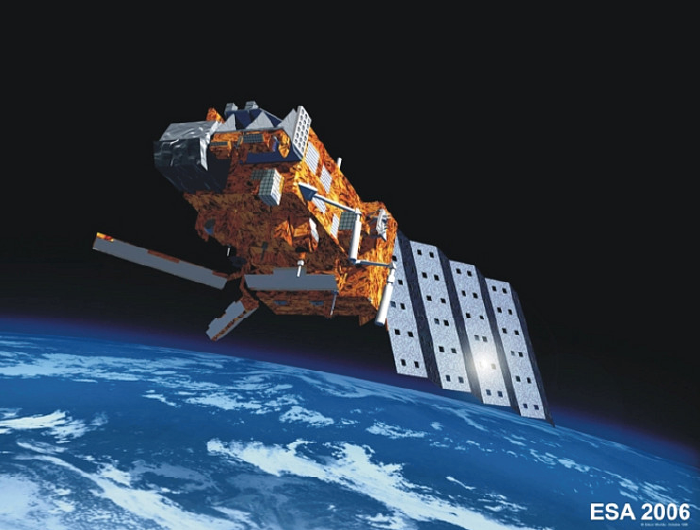Field of research
The Atmospheric Remote Sensing and Climate System (ARSCliSys) research group focuses on atmospheric remote sensing and climate change research, ranging from global satellite-based climate change monitoring to local-scale WegenerNet open-air laboratory observations, and from exploring climate, hydrology, and carbon changes to the study of weather and climate extremes and solutions for the low carbon transition.

The ARSCliSys core fields are atmospheric remote sensing and climate change research.
The atmospheric remote sensing research includes satellite-based occultation sounding such as GNSS radio occultation and other microwave and infrared methods, with the main aim to conceive and develop methods and algorithms providing climate benchmark data. Furthermore, we work on advancing ground-based observing systems with high resolution, especially the unique WegenerNet climate station network and climate change research facilities in southeast Austria.
The climate change research topics include analysis of atmosphere and climate variability and change, radiative forcings and feedbacks, Earth energy imbalance and implications, anthropogenic climate change trends, and linking climate change causes with impacts, from greenhous gas emissions via global warming to weather and climate extremes. Research foci on precipitation and hydro-meteorological extremes in a warming climate as well as on carbon budgeting and carbon management towards reaching Paris-compliant climate goals are also persued.
Methodologically, the research includes innovative use of a broad array of dynamical and statistical modeling and data analysis methods for studies along the full range from simple to complex systems, such as parts of the climate & society system. The main interest in this context is to help explore climate change and sustainable transition pathways towards a low-carbon and climate-resilient society.
Research objectives and themes
Benchmark-quality Earth observation satellite data such as from radio occultation and high-resolution ground observations such as from the WegenerNet are crucial resources for understanding climate change and for informing the low carbon transition and solutions. Under the group's motto since its foundation in 1996 – ARSCliSys: on the art of understanding the climate system – the research objectives include creating and using such benchmark climate data records, in combination with further key datasets and modeling, and to devise new analysis methods and solution approaches. Building on this, we conduct research on global and regional climate and hydrology change and the low carbon transition.
The scientific focus is placed on the following three research areas:
- Climate change and low carbon transition research at global to local scale
- Benchmark data records for climate change monitoring at global to regional scale
- Climate and hydrology change monitoring and analysis at regional to local scale
In this area we work to improve our insights into atmospheric and climate variability and change, to support the science basis for climate action by research linking climate change causes with impacts, such as emissions with climate extremes, and to enhance our carbon management research for a low carbon transition compliant with the Paris goals.
In this area we work to establish benchmark-quality satellite and ground-based data records of essential climate variables like atmospheric temperature and water vapor, to advance our leading Earth observation processing and climate analysis systems for reliable and traceable climate change monitoring, and to support next-generation climate satellite missions.
In this area we perform frontier research on climate and hydrology change and process understanding at regional to local scales, with a focus on analyzing heat and hydrological extremes under climate change in Europe and beyond, and deploy and advance our unique WegenerNet 3D Open-Air Laboratory for Climate Change Research for these studies.
Within the Wegener Center, ARSCliSys closely cooperates with the Global Climate Analysis research group (founded as of 2025 as a separate new group by taking out the Climate Analysis team from ARSCliSys), in particular in joint research activities in the field of radio occultation and climate. It as well cooperates closely with the Regional Climate research group, particularly in research on hydrological extremes under climate change, and with the Economics of Climate and Environmental Change and Social Complexity and System Transformation research groups in the fields of low carbon transition research and carbon management solutions.
The group also works closely with the Atmosphere and Climate Physics research group at the Institute of Physics (partner institute of the Wegener Center at the Faculty of Natural Sciences). In addition, ARSCliSys is a key group of the Field of Excellence Climate Change Graz, where it leads on the topic of global Earth observation and climate change physics and substantially contributes to regional hydro-meteorological and low carbon transition studies.
Beyond this, the group collaborates with many renowned partners nationally and internationally and actively contributes to setting the international research agenda in its field of research.
| +43 316 380 - 8431 https://homepage.uni-graz.at/gottfried.kirchengast/ |
| +43 316 380 - 8461 |
| +43 316 380 - 8455 |
| +43 316 380 - 8439 |
Christoph Bichler | +43 316 380 - 5267 |
| +43 316 380 - 8590 |
| +43 316 380 - 8438 |
Elisabeth Gallaun BSc | |
| +43 316 380 - 8434 |
Valerie Gössler BSc | |
| +43 316 380 - 8453 |
| |
| +43 316 380 - 8417 |
| +43 316 380 - 8460 |
| +43 316 380 - 8437 |
Andreas Nebel BSc | |
Albert Neuwirth | |
Alois Neuwirth | |
| +43 316 380 - 8452 |
| |
| |
Sebastian Scher BSc MSc PhD | +43 316 380 - 8433 |
Sabine Tschürtz | +43 316 380 - 8418 |
| +43 316 380 - 8432 https://wegcenter.uni-graz.at/en/our-research/global-climate-analysis/ |
| +43 316 380 - 8590 https://climatephysics.uni-graz.at/en/ |
Note: Functions up to founding, as of January 2025, of Global Climate Analysis as a separate new group at Wegener Center (by taking out the Climate Analysis team from ARSCliSys), and the Atmosphere and Climate Physics research group in new form at the Institute of Physics (along with ceasing the Atmospheric and Climate Physics Working Group linked to ARSCliSys).